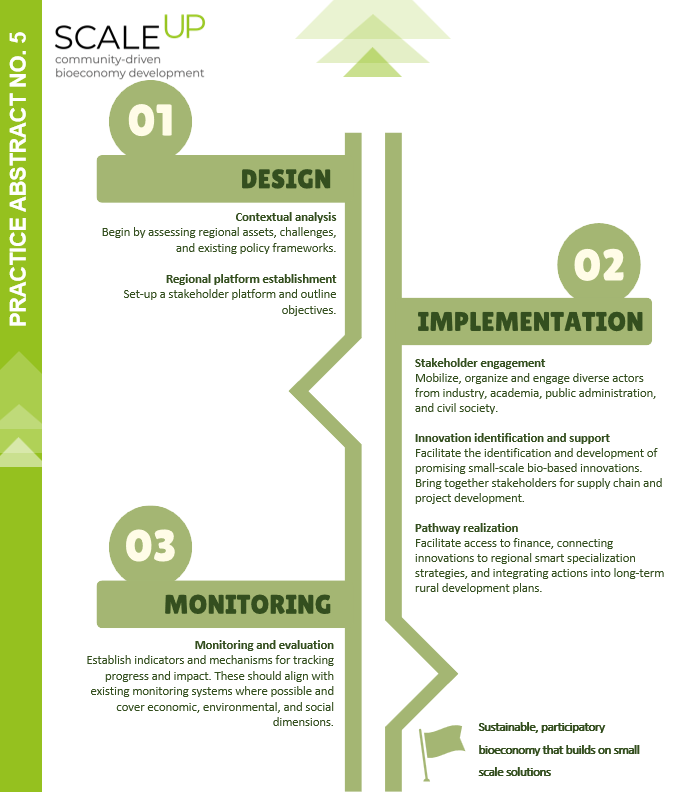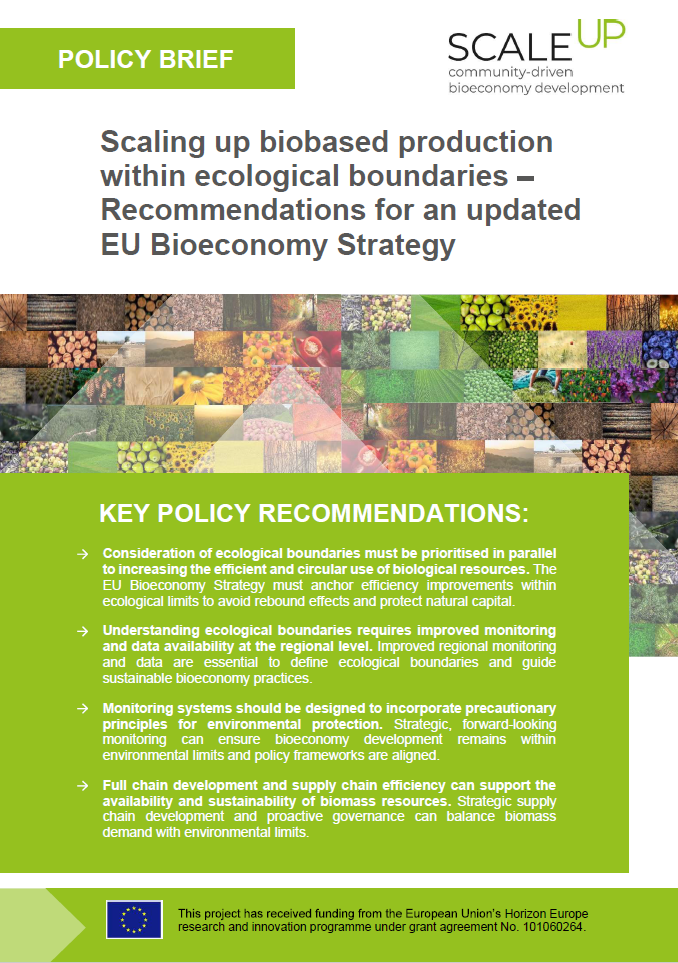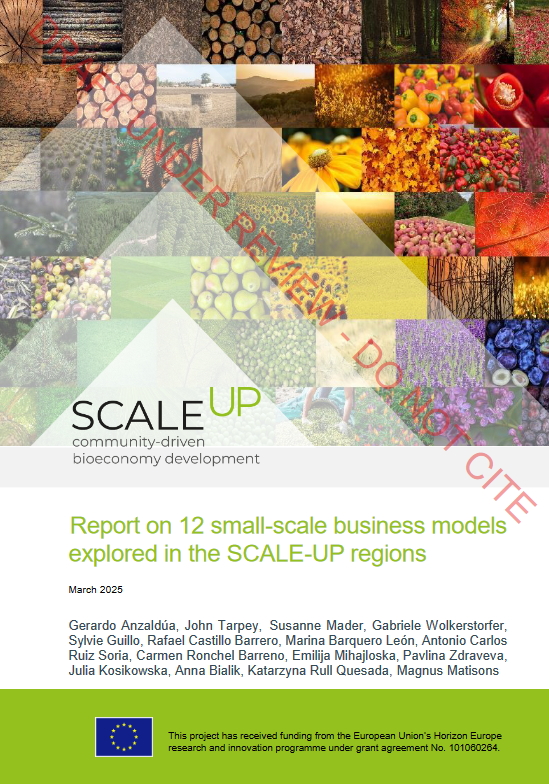Photo: canva.com
Balancing Socio-economic and Environmental Objectives
Indicators, tools and practical insights
- Event
- Date
-
- Location
- online
- Speaker
On 31 October 2024, Work Stream 7 “Balancing socio-economic and environmental objectives: Indicators, tools and practical insights” of the SCALE-UP training programme convened its first session. The aim was to present and discuss monitoring frameworks, indicator sets and participatory tools that enable regional stakeholders to reconcile potentially competing social, economic and ecological goals within the bioeconomy. Holger Gerdes and Zoritza Kiresiewa (Ecologic Institute) welcomed 43 bioeconomy stakeholders – from SCALE-UP's focal regions and beyond – and outlined how a functional framework is needed to navigate trade-offs and embed bio-based solutions in a sustainable, regenerative and just regional bioeconomy.
Key Presentations and Practical Insights
- Aaron Best (Ecologic Institute) introduced the MonBio project, which focuses on improving monitoring systems for environmental aspects of the bioeconomy. He reviewed existing indicator frameworks, identified data gaps, and proposed actionable recommendations to enhance environmental monitoring at regional scale.
- Next, Gerardo Anzaldua (Ecologic Institute) presented the SCALE-UP Sustainability Screening methodology, emphasizing that regions are the most appropriate territorial unit for implementing bioeconomy strategies. He detailed how ecological boundaries were assessed in six focal regions and noted that most participants do not consider the bioeconomy intrinsically sustainable – underscoring the critical role of transparent indicators and participatory evaluation.
- Johannes Rupp (Institute for Ecological Economy Research, IÖW) then examined "Regional & decentralized biobased value chains" from a German perspective. He defined core concepts such as decentralization and rural bioeconomy, illustrated value-chain examples from Brandenburg, and highlighted that political support and cooperative business models are essential to mobilize decentralized, regionalized bio-based value chains.
- After the coffee break, Susanne Mader (Food Cluster – Business Upper Austria), Marina Barquero León (Technological Corporation of Andalusia) and Nina Bailet (Association of Chambers of Agriculture in the Atlantic Arc) shared case studies from Austria, Spain and France. Their presentations demonstrated how regional actors have successfully managed trade-offs – particularly regarding groundwater and freshwater resources – through intermunicipal cooperation and long-term resource-management strategies.
Conclusions and Outlook
In the closing plenary, participants revisited whether the bioeconomy is intrinsically sustainable. It was agreed that only robust indicators, reliable data streams and inclusive, participatory formats can provide an evidence base to evaluate this. The MonBio monitoring tools and the SCALE-UP Sustainability Screening already offer practical guidance for policymakers, researchers and practitioners. Yet, to minimize socio-economic and environmental trade-offs in regional bioeconomy development, ongoing cross-border collaboration, long-term strategic planning and a solid data infrastructure remain indispensable for advancing a truly inclusive, resource-efficient bioeconomy.







